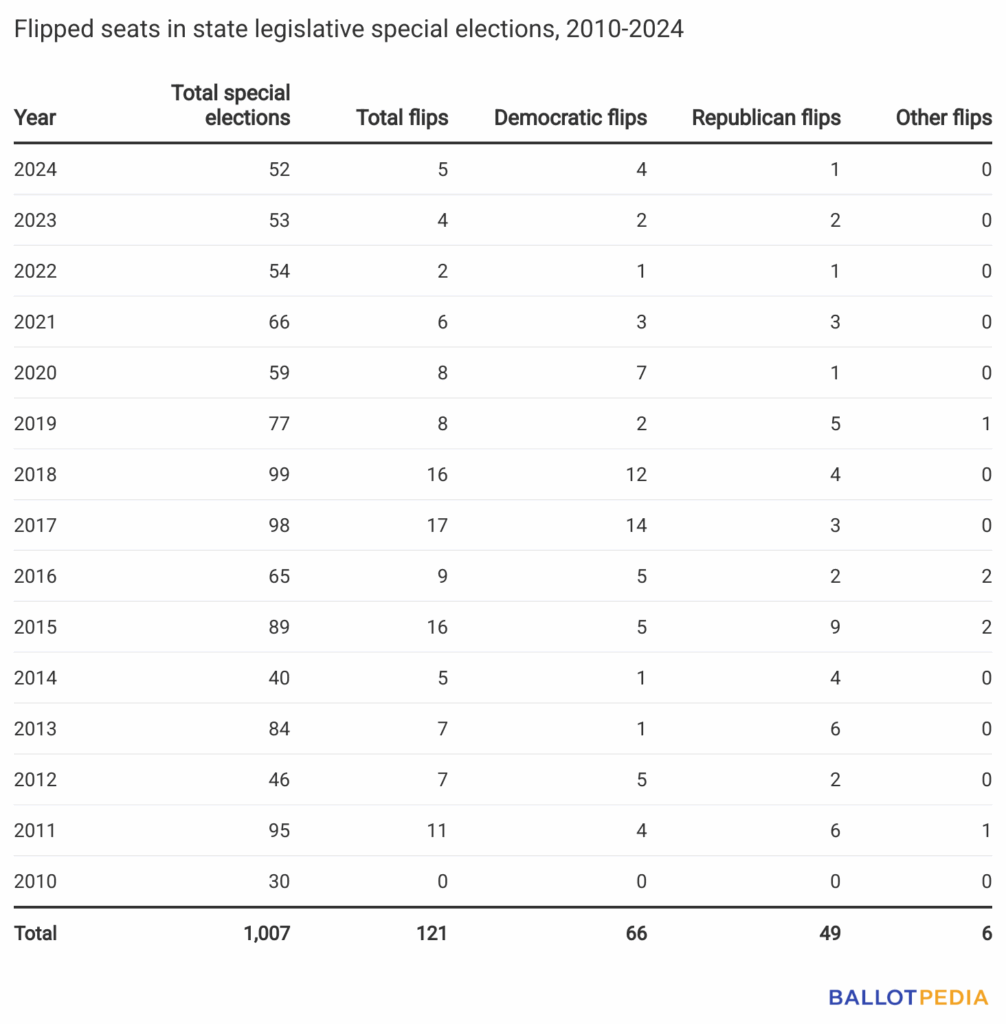Three Nov. 4 special state legislative elections in Mississippi resulted in changes in partisan control from Republican to Democrat, one in the House and two in the Senate. Now seven special legislative elections in 2025 have resulted in changes in partisan control this year.
The other four seats that changed party control this year were:
- January 28: Iowa Senate District 35 changed from Republican to Democratic control.
- March 25: Pennsylvania Senate District 36 changed from Republican to Democratic control.
- April 22: Mississippi House District 82 changed from Democratic to independent or minor party control.
- August 26: Iowa Senate District 1 changed from Republican to Democratic control.
Between 2010 and 2024, 121 special elections resulted in changes in partisan control of state legislative seats.

Democrats gained two seats in the Mississippi Senate, bringing the chamber to a 34-18 Republican majority and eliminating Republicans' veto-proof supermajority. Heading into the elections, Republicans had a 36-16 majority in the Mississippi Senate—one more than the minimum of 35 required to override a gubernatorial veto. Mississippi is one of 36 states that require a two-thirds vote from both chambers of the Legislature to override vetoes.
Democrats broke that veto-proof majority after winning the 2nd and 45th Districts from Republicans. On Nov. 4, Mississippi held 10 total special legislative elections, eight in the Senate and two in the Mississippi House of Representatives. Six of the Senate elections and one of the House elections were the result of redistricting. The state passed new state legislative maps after a three-judge district court panel ruled in July 2024 that the previous maps did not contain enough majority-Black districts.
House District 22 also changed from Republican to Democratic control. Republicans controlled 79 seats in the 122-member chamber before the elections. As a result of the elections, they will have a 78-seat majority.
Currently, there are 27 state legislatures with veto-proof supermajorities—eight Democratic and 19 Republican. In two states—Kansas and Kentucky—one party had a veto-proof supermajority in the legislature while the other party held the governor's office.
As of November 2025, 95 state legislative special elections have been scheduled for 2025 in 23 states. Between 2011 and 2024, an average of 70 special elections took place each year.



